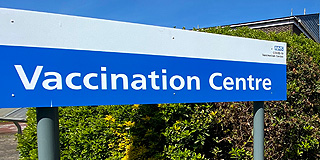
Collaboratively reviewing NHSE’s Kent and Medway Screening and Immunisation Team’s incidents processes provided solutions to increase the team’s capacity and resilience, and improve patient care.
Challenge
Evidence-based screening programmes have great potential to improve health outcomes. When organised effectively, they can prevent disease, reduce disability and cut mortality.
NHSE asked for administrative support but NHS SCW developed a long-term solution; by mapping all processes, we enabled the team to see where there was duplication or steps that had no, or limited, value.
NHS SCW then produced a set of recommendations to help the team revise their processes and ultimately, free up capacity to use elsewhere, such as spotting trends to help improve services provided to patients and carers.
What we did
Effective processes are key to making most effective use of team members’ talents, time, resources and capacity. Given the wider context of structural changes to NHS England, and the pre-existing capacity challenges, NHS England South East recognised the value in undertaking a process mapping exercise to help understand opportunities for enhancements to and improvements within their existing processes. This would enable the team to use their capacity and skills as effectively as possible and find opportunities to build resilience.
The Kent and Medway Screening and Immunisation team (SIT) team members were willing to engage with the process, work collaboratively with each other and SCW, and be open to change.
SCW worked collaboratively with the Kent and Medway (SIT) to:
- Process map each incident process for every screening and immunisation programme managed by the team
- Collate qualitative data and evidence from SIT members based on their experience of managing incidents including perceived strengths, weaknesses, opportunities and threats within each process. In turn, SCW helped the team see where there were improvement opportunities that would have a direct benefit for patients, such as spotting trends and using this qualitative data to improve screening and immunisation programmes.
- Explore and identify areas of good practice and the processes that worked well to support the team’s goals and;
Review information and interview neighbouring SITs in Hampshire and Isle of Wight; Thames Valley; and Surrey and Sussex to understand comparable processes and opportunities for collaboration to support SIT resilience across the region.
Activity
System and Organisational Effectiveness
Delivered a bespoke solution to provide insight to enable the Kent and Medway’s Screening and Immunisation Team (SIT) to address team capacity challenges
Quality improvement
Collaborated with Kent and Medway SIT to improve processes, enabling the team to focus on trend-spotting to improve service quality and experience for patients
Outcome
- The whole team and all roles engaged in process mapping
- A supportive culture enabled thorough reflection and an openness in sharing views or exploring variation
- Methods used supported team ownership of recommendations – reframes continuous process improvement as everyone’s responsibility
- Online collaboration made best use of the team’s available capacity
- Recommendations categorised with the team’s capacity in mind, based on speed, capacity and cost of implementation
- Supports Greener NHS as a secondary benefit by reducing carbon impact through streamlining document management processes
- Supports improvement of service delivery by freeing up capacity for team members to focus on quality improvement trend-spotting, which in turn improves patient and carer experience of screening and immunisation services







